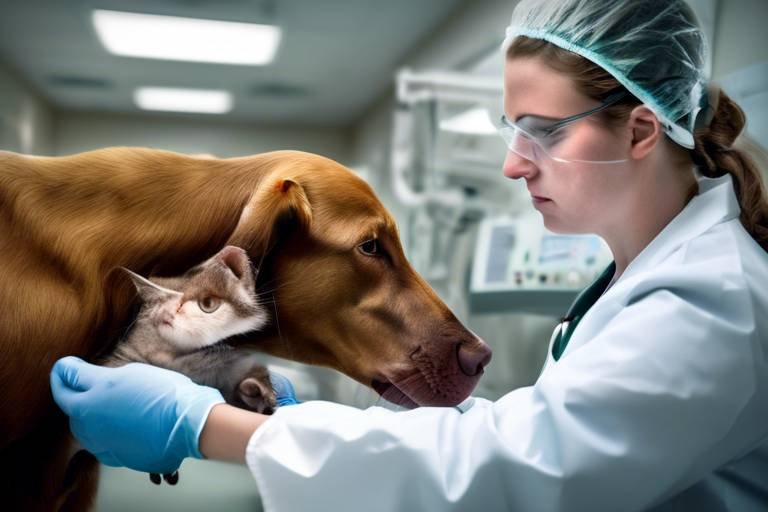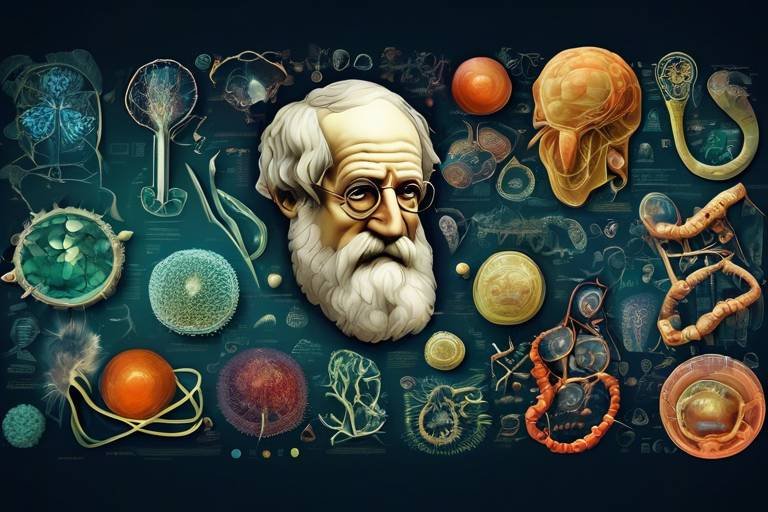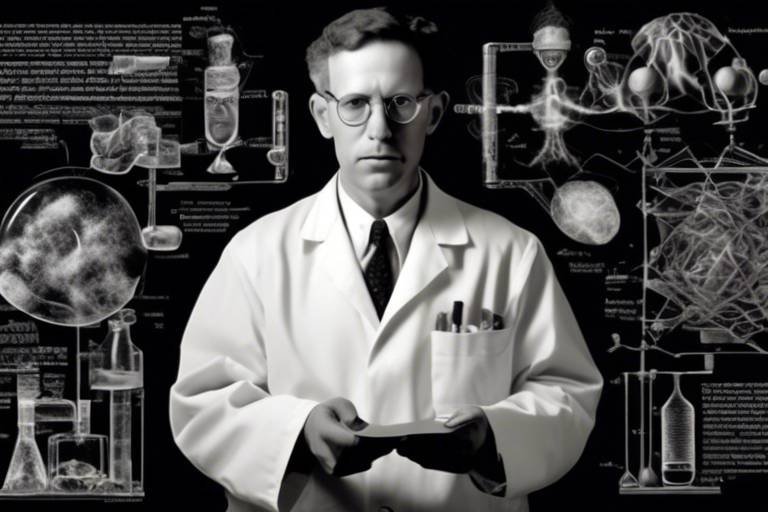The Ethical and Philosophical Aspects of Genetic Modification
In an era where science fiction is rapidly becoming science fact, the topic of genetic modification has emerged as a hotbed of ethical and philosophical debate. It’s like standing at the edge of a cliff, gazing into the vast unknown of what our future could hold. Are we pioneers of a new frontier, or are we meddling with the very fabric of life? This article explores the complex ethical and philosophical considerations surrounding genetic modification, examining its implications for society, morality, and the future of humanity.
Understanding what genetic modification entails is crucial for discussing its ethical implications. At its core, genetic modification refers to the direct manipulation of an organism's DNA to alter its characteristics. This can be done through various techniques, including CRISPR, gene therapy, and transgenic methods. The applications of genetic modification are diverse, ranging from agriculture, where crops are engineered for better yield and pest resistance, to medicine, where gene therapy aims to cure genetic disorders. Each application brings its own set of ethical dilemmas, making it imperative to dissect the moral landscape surrounding these technologies.
As we delve deeper into the realm of genetic engineering, we encounter several ethical dilemmas that challenge our moral compass. For instance, who gets to decide what constitutes a 'desirable' trait? Should we prioritize the enhancement of human capabilities, or should we focus on preserving the integrity of natural species? These questions are not merely academic; they have real-world implications that could affect generations to come. The potential for unintended consequences looms large, raising concerns about the long-term impact of our choices on the environment and on human health.
Consent is a pivotal aspect of ethical discussions in genetic modification. But who should give consent, especially in cases involving embryos or genetically modified organisms? Should parents be able to choose genetic traits for their children? This raises a host of ethical issues surrounding autonomy and the rights of individuals who cannot speak for themselves. The challenge lies in ensuring that consent is informed and voluntary, which is complicated by the technical nature of genetic science.
One of the most profound ethical considerations is the rights of future generations affected by genetic modifications made today. Are we responsible for the consequences of our actions on those who come after us? This question forces us to confront our legacy and the moral obligations we have to the future. If we alter the genetic makeup of a species, what are the implications for biodiversity and ecological balance? The responsibility of ensuring a sustainable future rests heavily on our shoulders.
Informed consent is vital in genetic research. Participants must understand what they are agreeing to, including the potential risks and benefits of their involvement. Transparency is crucial, as it fosters trust between researchers and participants. The ethical principle of autonomy demands that individuals have the right to make informed choices about their genetic information and its implications.
The idea of playing God often arises in discussions about genetic modification. This phrase encapsulates the fear that humans are overstepping natural boundaries. By altering life forms, are we assuming a role that should be reserved for a higher power? This philosophical dilemma challenges us to consider the moral boundaries involved in genetic engineering. While some argue that we have a duty to alleviate suffering and enhance life, others caution against the hubris of believing we can control nature.
Genetic modification can significantly impact biodiversity. Altering genetic traits in organisms may lead to ecological imbalances and the loss of natural genetic diversity. When we introduce genetically modified organisms (GMOs) into the environment, we risk disrupting existing ecosystems. The intricate web of life that sustains our planet is delicate, and any significant alteration could have unforeseen consequences.
Monoculture, a consequence of genetic modification, poses risks to ecosystems. Relying on genetically modified crops can create vulnerabilities, making agriculture susceptible to pests and diseases. Imagine a world where a single pest could wipe out an entire crop because it has been engineered to lack diversity. This scenario is not far-fetched; it highlights the importance of maintaining genetic diversity to ensure the resilience of our food systems.
The societal implications of genetic modification are vast. As we integrate genetic technologies into our daily lives, they may influence social structures, healthcare access, and ethical norms within communities. The potential for genetic modification to enhance human capabilities raises questions about societal equity. Will access to these technologies be available to all, or will it deepen existing divides?
Access to genetic technologies raises concerns about equity. Disparities in access can exacerbate existing inequalities in health and resources among different populations. If only a select few can afford genetic enhancements, what does that mean for societal cohesion? The ethical implications of access to these technologies must be addressed to ensure that advancements benefit everyone, not just the privileged.
- What is genetic modification? Genetic modification involves altering the DNA of an organism to change its traits.
- What are the ethical concerns surrounding genetic modification? Ethical concerns include issues of consent, the rights of future generations, and the potential ecological impact.
- How does genetic modification affect biodiversity? Genetic modification can lead to monoculture and ecological imbalances, threatening natural genetic diversity.
- What is informed consent in genetic research? Informed consent ensures that participants understand the risks and benefits before agreeing to take part in genetic studies.
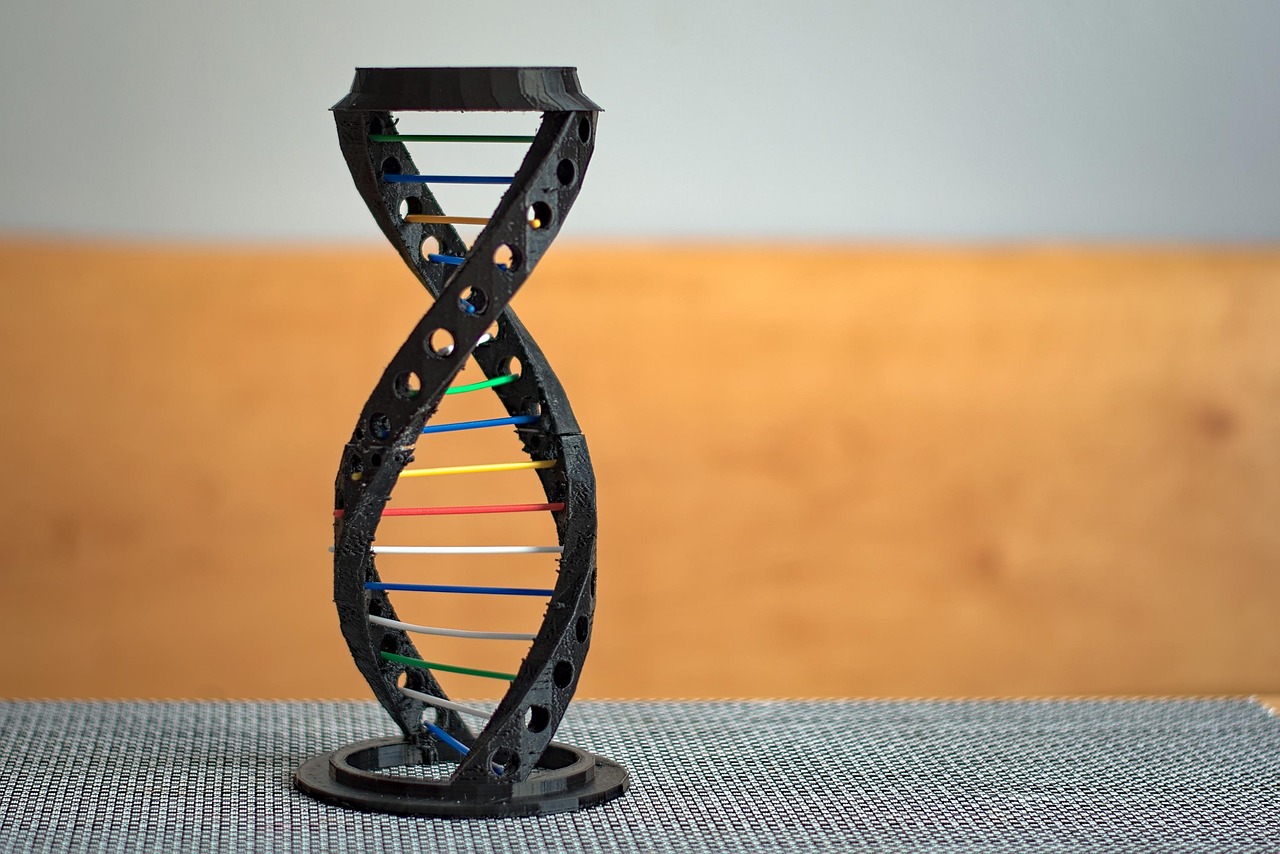
The Nature of Genetic Modification
Understanding what genetic modification entails is crucial for discussing its ethical implications. At its core, genetic modification refers to the direct manipulation of an organism's DNA to alter its characteristics. This can be achieved through various techniques, including traditional breeding methods, but more prominently through modern biotechnological methods such as CRISPR and gene cloning. These technologies allow scientists to add, remove, or change specific genes within an organism, leading to significant advancements in fields such as agriculture, medicine, and biotechnology.
In agriculture, for example, genetic modification has led to the development of crops that are resistant to pests, diseases, and harsh environmental conditions. These genetically modified organisms (GMOs) can yield more food with fewer resources, which is essential as the global population continues to grow. However, this progress raises questions about sustainability and the long-term effects on ecosystems.
In the realm of medicine, genetic modification plays a pivotal role in creating treatments for genetic disorders, improving vaccine efficacy, and advancing personalized medicine. Imagine a world where diseases caused by genetic mutations could be corrected before they manifest. This potential is exciting, but it also beckons a discussion on the moral implications of altering human genes. Are we on the brink of eradicating genetic diseases, or are we venturing into uncharted ethical waters?
Furthermore, biotechnology has opened new avenues for genetic modification, such as the creation of genetically engineered microorganisms that can produce biofuels or break down pollutants. These innovations could revolutionize industries and combat climate change, yet they also pose risks to biodiversity and the natural balance of ecosystems.
To summarize, the nature of genetic modification encompasses a wide array of applications and implications. As we delve deeper into this fascinating field, it is essential to weigh the benefits against the potential risks and ethical dilemmas that accompany these powerful technologies. Below is a table summarizing some key applications of genetic modification:
| Application | Description | Benefits |
|---|---|---|
| Agriculture | Development of crops with enhanced traits | Increased yield, pest resistance |
| Medicine | Treatment for genetic disorders | Potential to cure diseases, personalized medicine |
| Biotechnology | Creation of microorganisms for industrial use | Environmental benefits, sustainable resources |

When we dive into the world of genetic engineering, we quickly realize that it’s not just about science and technology; it’s also a deep and complex ethical quagmire. The implications of modifying genes stretch far beyond the laboratory and enter the realm of moral philosophy and societal norms. One of the most pressing ethical dilemmas is the concept of consent. Who gets to decide what modifications are made, and who has the right to consent? This is particularly challenging when we consider embryos or genetically modified organisms (GMOs) where the subjects cannot speak for themselves.
Another significant ethical concern is the notion of playing God. This phrase often pops up in discussions about genetic modification, evoking the image of humans overstepping their bounds and altering the very fabric of life. Is it our place to manipulate genetics, or should we respect the natural order? This question leads us to ponder the moral boundaries that should guide scientific exploration. Just as a sculptor shapes a block of marble into a beautiful statue, scientists are now shaping life itself, but at what cost?
Moreover, the potential for unintended consequences is a significant ethical consideration. Modifying an organism’s genetics could lead to unforeseen effects that ripple through ecosystems and generations. Imagine planting a genetically modified crop designed to resist pests; while it may succeed in the short term, what happens when that crop outcompetes native plants or creates resistant pests? The long-term impact on biodiversity and ecological balance is a serious concern.
Consent is a pivotal aspect of ethical discussions in genetic modification. It’s not just about saying “yes” or “no” but understanding the full implications of that choice. In cases involving embryos or GMOs, the question arises: who should give consent? Should parents have the right to decide the genetic makeup of their children, or should that decision be left to the future generation? This dilemma brings forth a myriad of questions about autonomy, rights, and responsibilities.
When considering genetic modifications, we must also think about the rights of future generations. Are we placing our desires above the well-being of those who come after us? The ethical implications of our choices today could echo for decades, if not centuries. For instance, if we create a genetically modified organism that thrives in our current environment, what happens when that environment changes? The legacy we leave could either be a gift or a burden for future generations.
Informed consent is vital in genetic research. This is not merely a legal formality but a fundamental ethical principle that ensures participants are fully aware of what they are agreeing to. Transparency is crucial; individuals must understand the potential risks and benefits of participating in genetic studies. Without this understanding, consent becomes meaningless. Researchers have a responsibility to communicate clearly and honestly, allowing participants to make informed decisions about their involvement.
The idea of playing God often arises in discussions about genetic modification. It prompts us to reflect on the philosophical implications of humans altering life forms. Are we equipped to make such profound changes? The moral boundaries involved in genetic engineering are not just scientific; they are deeply philosophical. Altering the genetic makeup of an organism may seem like a technological marvel, but it also raises questions about the essence of life itself. What does it mean to be human, and how much control should we exert over our biology?

When we delve into the intricate world of genetic modification, one pivotal aspect that often surfaces is the role of consent. It's not just a legal formality; it's a profound ethical consideration that shapes the very foundation of genetic research and its applications. The question arises: who truly has the authority to give consent, especially when it involves embryos or genetically modified organisms? This dilemma becomes even more complex when we consider the implications for future generations.
In many cases, consent is straightforward—adults can make informed decisions about their own genetic information. However, when we step into the realm of embryos, the waters become murky. Should parents have the right to decide the genetic makeup of their future children? This is not merely a question of parental rights; it touches on deeper issues of autonomy, ethics, and the potential for unforeseen consequences. Imagine a world where genetic traits are selected based on preferences, leading to a generation of children who are not just products of nature, but of choice. What does that mean for the concept of individuality?
Moreover, the question of consent extends beyond just human subjects. In agricultural biotechnology, for example, farmers often use genetically modified organisms (GMOs) that may have been developed without their direct consent. This raises ethical concerns about the transparency of the genetic modification process and the rights of those who rely on these organisms for their livelihood. Should farmers be informed about the genetic alterations made to the seeds they plant? Should they have a say in the decision-making process?
Informed consent is not just about signing a document; it’s about ensuring that individuals understand the implications of their choices. This means providing clear, accessible information about the risks and benefits of genetic modification. Transparency is key. Participants in genetic studies should be made aware of how their genetic data will be used, stored, and potentially shared. Without this understanding, consent may be rendered meaningless.
Furthermore, the concept of consent in genetic research is intertwined with issues of power dynamics. Vulnerable populations may feel pressured to participate in genetic studies without fully grasping the implications. This raises ethical questions about exploitation and the need for protections for these groups. As we navigate the evolving landscape of genetic technology, it is crucial to prioritize ethical standards that safeguard the rights of all individuals involved.
In conclusion, the role of consent in genetic modification is not merely a checkbox on a form; it encapsulates the essence of ethical responsibility. As we continue to explore the possibilities of genetic engineering, we must ensure that consent is informed, voluntary, and respectful of both present and future generations. The stakes are high, and the conversation is just beginning.
- What is informed consent in genetic research? Informed consent is the process of providing potential participants with comprehensive information about a study, allowing them to make knowledgeable decisions about their participation.
- Who can give consent for genetic modifications involving embryos? Typically, the parents or guardians of the embryo would provide consent, but this raises ethical questions about the rights of the unborn.
- How does consent relate to genetic technologies in agriculture? Farmers should be informed about the genetic modifications in seeds they purchase, ensuring they have a say in the technologies affecting their livelihoods.

The concept of future generations is a profound ethical consideration in the realm of genetic modification. When we engage in genetic engineering today, we are essentially making decisions that will shape the lives of individuals who have yet to be born. It's akin to planting a tree that will bear fruit long after we are gone; the fruits of our labor will nourish not just ourselves but also those who come after us. This raises a crucial question: What rights do these future generations have regarding the genetic alterations we impose on them?
As we navigate this complex landscape, we must consider the potential implications of our actions. For instance, if we genetically modify crops to withstand certain pests, we might inadvertently create a dependency on these engineered traits, affecting the agricultural practices of future farmers. Similarly, altering human genes to eliminate diseases could lead to unforeseen consequences, such as new health issues emerging or the loss of genetic diversity. The ethical implications extend beyond mere scientific curiosity; they touch on our responsibilities as stewards of the future.
One of the most pressing issues is the concept of intergenerational justice. This principle suggests that the decisions we make today should not harm the opportunities or well-being of future generations. To put it simply, we need to ask ourselves: Are we ensuring a better world for those who will inherit it? The legacy we leave behind should not be one of regret or harm, but rather one that fosters growth, diversity, and resilience.
Moreover, the rights of future generations also encompass the right to informed choice. If we are altering the genetic fabric of life, should not those who come after us have a say in these changes? The idea of consent becomes even more complicated when we think about those who cannot voice their opinions yet. Thus, it is imperative that we establish frameworks that allow for the consideration of future voices in the discussions about genetic modifications.
In conclusion, as we stand at the crossroads of genetic innovation, we must approach our decisions with a sense of responsibility and foresight. By considering the rights of future generations, we can strive to create a world that honors their potential and preserves the rich tapestry of life for years to come. After all, the choices we make today will echo through time, shaping the very essence of humanity's future.
- What are the ethical implications of genetic modification?
Genetic modification raises questions about consent, the impact on future generations, and the moral boundaries of altering life. - How does genetic modification affect biodiversity?
It can lead to ecological imbalances and a loss of natural genetic diversity, which is crucial for ecosystem resilience. - What is intergenerational justice?
This principle emphasizes that our current decisions should not harm the opportunities or well-being of future generations. - Should future generations have a say in genetic modifications?
Yes, establishing frameworks for considering future voices in genetic discussions is essential for ethical decision-making.
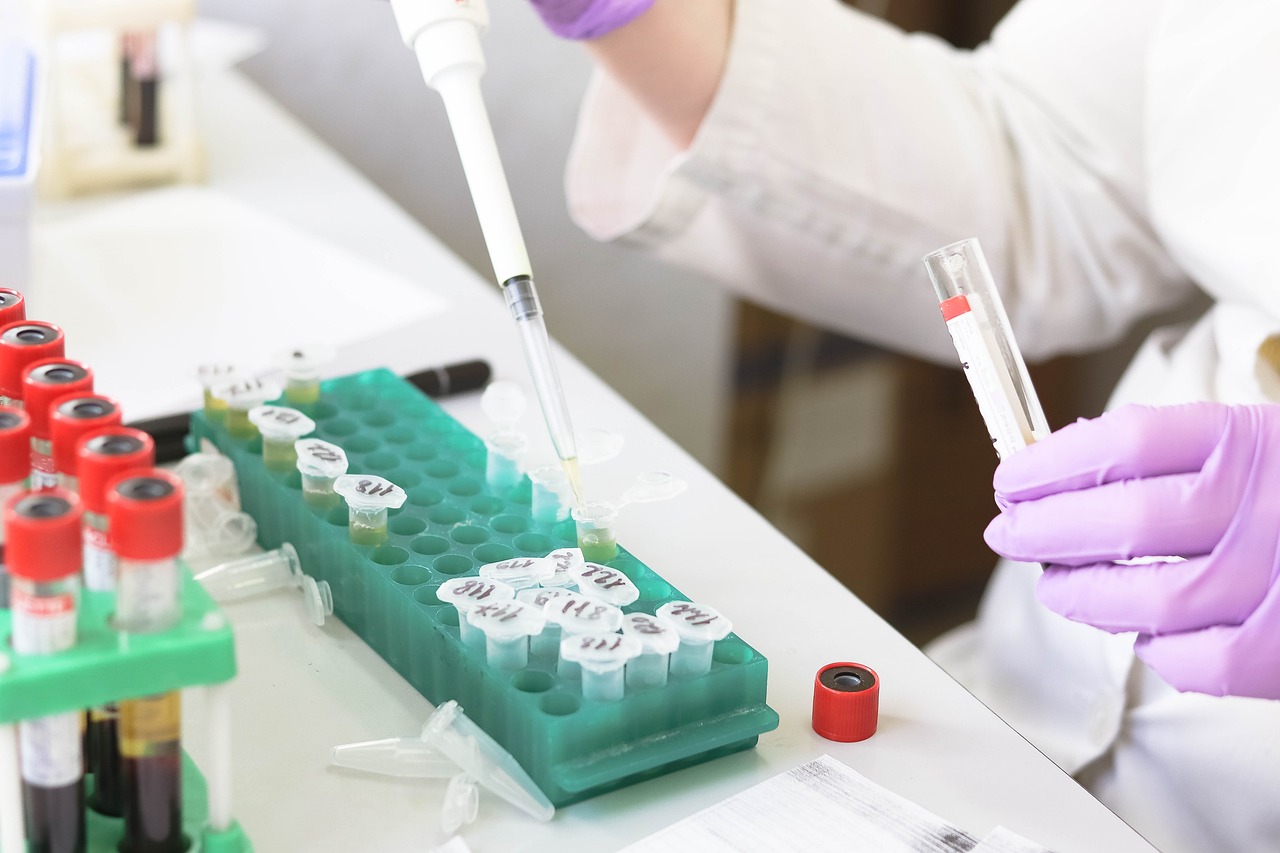
Informed consent is not just a legal requirement in genetic research; it is a fundamental ethical principle that ensures participants are fully aware of what they are agreeing to. Imagine you’re about to embark on a thrilling adventure, but before you can jump in, you need to know the rules of the game, the potential risks involved, and what you might gain from the experience. This analogy captures the essence of informed consent in genetic studies. Participants should be provided with clear, comprehensive information about the nature of the research, the procedures involved, and the possible risks and benefits.
One of the most critical aspects of informed consent is ensuring that participants understand the implications of their involvement. This includes not only the direct effects on their health but also how their genetic information might be used in the future. For instance, could their data be shared with third parties? Could it be used for purposes they did not initially agree to? These questions are essential in fostering a trustful relationship between researchers and participants.
Moreover, the complexity of genetic information can make it challenging for individuals to grasp the full scope of what they are consenting to. Therefore, researchers must present information in a way that is accessible and comprehensible. This might involve using visual aids, simplified language, or even one-on-one discussions to clarify any doubts. The goal is to empower participants to make informed decisions, free from coercion or misunderstanding.
To illustrate the importance of informed consent, consider the following table that outlines key elements that should be included in the consent process:
| Key Element | Description |
|---|---|
| Purpose of the Research | Clear explanation of what the research aims to achieve. |
| Procedures Involved | Detailed description of what participants will undergo. |
| Risks and Benefits | Outline of potential risks and any expected benefits. |
| Confidentiality | Information on how personal data will be protected. |
| Right to Withdraw | Participants should know they can withdraw at any time without penalty. |
Additionally, the concept of informed consent extends beyond individual participants. It raises questions about the broader ethical implications of genetic research. For instance, how do we ensure that vulnerable populations are not exploited? Informed consent must be approached with a sense of responsibility, ensuring that all groups have equitable access to information and the opportunity to participate voluntarily.
In conclusion, informed consent in genetic research is a multifaceted issue that demands careful consideration. It is about more than just ticking boxes; it’s about fostering an atmosphere of trust, transparency, and respect. As we continue to explore the frontiers of genetic modification, we must prioritize the rights and understanding of participants, ensuring that they are not just subjects in a study but informed individuals making choices about their own genetic futures.
- What is informed consent? Informed consent is the process by which participants are made aware of the details of a study, including its risks and benefits, and agree to participate voluntarily.
- Why is informed consent important in genetic research? It ensures that participants are fully aware of what they are agreeing to, protecting their autonomy and rights.
- How can researchers ensure participants understand the consent process? Researchers can use clear language, visual aids, and personal discussions to make the information accessible.
- Can participants withdraw from a study? Yes, participants have the right to withdraw from a study at any time without facing any penalties.

The phrase “playing God” often emerges in conversations surrounding genetic modification, and it carries a weighty significance. At its core, this concept raises profound questions about the morality of humans intervening in the natural order. Are we overstepping our bounds by altering life at its most fundamental level? The implications of such actions are immense and can lead us down a path filled with ethical dilemmas and unforeseen consequences.
When we consider genetic modification, we are not merely talking about tweaking a few genes here and there; we are engaging in a complex dance with the very fabric of life itself. Imagine being given the power to rewrite the genetic code of an organism—it's akin to having a divine pen in hand. But with great power comes great responsibility. The notion of playing God suggests that we may not fully comprehend the ramifications of our alterations. Just as a child playing with a delicate toy can inadvertently break it, our interventions could lead to catastrophic outcomes.
One of the most pressing concerns is the potential for unintended consequences. For instance, when scientists genetically modify crops to be more resistant to pests, they may inadvertently create new problems, such as the emergence of super pests that can withstand these alterations. This not only disrupts the ecological balance but also raises questions about our role as stewards of the Earth. Are we equipped to handle the complexities of life, or are we simply gambling with nature?
Furthermore, the philosophical implications of this concept extend beyond mere ecological concerns. They touch upon the essence of what it means to be human. Are we to be seen as creators or mere manipulators? Some argue that by altering life forms, we are diminishing their inherent value and uniqueness. In this sense, playing God could be viewed as a form of hubris, where humans assume a role traditionally reserved for a higher power. This perspective invites a broader discussion about the limits of human intervention and the respect we owe to the natural world.
As we delve deeper into the ethical landscape of genetic modification, it becomes clear that the concept of playing God is not just a philosophical musing; it is a call to action. We must engage in rigorous debate and reflection about our responsibilities as we navigate this uncharted territory. To help facilitate this discussion, we can consider the following questions:
- What ethical frameworks should guide our decisions in genetic modification?
- How do we balance innovation with caution?
- What role should public opinion play in shaping genetic policies?
In conclusion, the concept of playing God in genetic modification serves as a reminder of the profound responsibilities that come with scientific advancement. It urges us to reflect on our choices and their implications for future generations. As we stand at the crossroads of possibility and peril, it is imperative that we approach genetic modification with a sense of humility and a commitment to ethical integrity.
- What is genetic modification? Genetic modification involves altering the DNA of an organism to achieve desired traits, such as disease resistance or increased yield.
- Why is the concept of playing God controversial? It raises ethical concerns about human intervention in natural processes and the potential consequences of such actions.
- How can we ensure ethical practices in genetic modification? By establishing clear guidelines, engaging in public discourse, and prioritizing transparency in research.

playing God
The phrase “playing God” often echoes in the corridors of ethical debates surrounding genetic modification. It is a powerful term that conjures images of humanity stepping beyond its natural boundaries, wielding the ability to alter the very fabric of life itself. But what does it truly mean to play God? In essence, it refers to the act of exercising control over life forms, manipulating genes, and making decisions that could have far-reaching consequences. This notion raises profound philosophical questions about our role in the universe and our responsibilities to other living beings.
When we engage in genetic modification, are we not assuming the role of a divine creator? The implications of this are staggering. Imagine a sculptor meticulously chiseling away at a block of marble, envisioning a masterpiece from the stone. In a similar vein, genetic engineers manipulate the building blocks of life—DNA—crafting organisms with desired traits. However, unlike the sculptor, who works with a medium that is already inert, geneticists are dealing with living entities that can evolve, reproduce, and interact with their environments in unpredictable ways.
This leads us to consider the moral boundaries of our actions. Are we justified in altering life forms for our benefit? Proponents argue that genetic modification can lead to significant advancements, such as curing diseases, enhancing food security, and even combating climate change. Yet, critics warn of the potential for unforeseen consequences. For instance, what happens when we engineer crops to be resistant to pests? While it may seem beneficial, this could lead to ecological imbalances and the emergence of super pests that threaten entire ecosystems.
Moreover, the concept of playing God also brings forth the issue of intent. Are we driven by altruism or self-interest? If the primary motivation is profit, how do we ensure that the technologies developed are used ethically? The line between beneficial innovation and reckless experimentation can easily blur. This ambiguity compels us to reflect on our ethical frameworks and the guiding principles that govern our actions in the realm of genetic modification.
Furthermore, the implications of playing God extend beyond immediate outcomes. They touch upon our obligations to future generations. If we modify organisms today, what legacy are we leaving behind? Will our descendants inherit a world filled with resilient crops and disease-free organisms, or will they grapple with the repercussions of our choices, such as reduced biodiversity and ecological instability? The responsibility we bear as stewards of the planet is immense, and it begs the question: are we equipped to handle such power?
In conclusion, the notion of playing God in genetic modification is a double-edged sword. It offers the promise of innovation and progress but also poses significant ethical dilemmas that require careful consideration. As we navigate this complex landscape, it's crucial to engage in open dialogues, involving not only scientists and ethicists but also the broader community. After all, the decisions we make today will shape the future of life on Earth.
- What is genetic modification? Genetic modification is the direct manipulation of an organism's genes using biotechnology to alter its characteristics.
- Why is the concept of "playing God" controversial? It raises ethical concerns about humanity's role in altering life and the potential consequences of such actions.
- What are the potential benefits of genetic modification? Benefits include disease resistance, enhanced food security, and improved agricultural efficiency.
- What risks are associated with genetic modification? Risks include ecological imbalances, loss of biodiversity, and unforeseen health impacts on humans and animals.
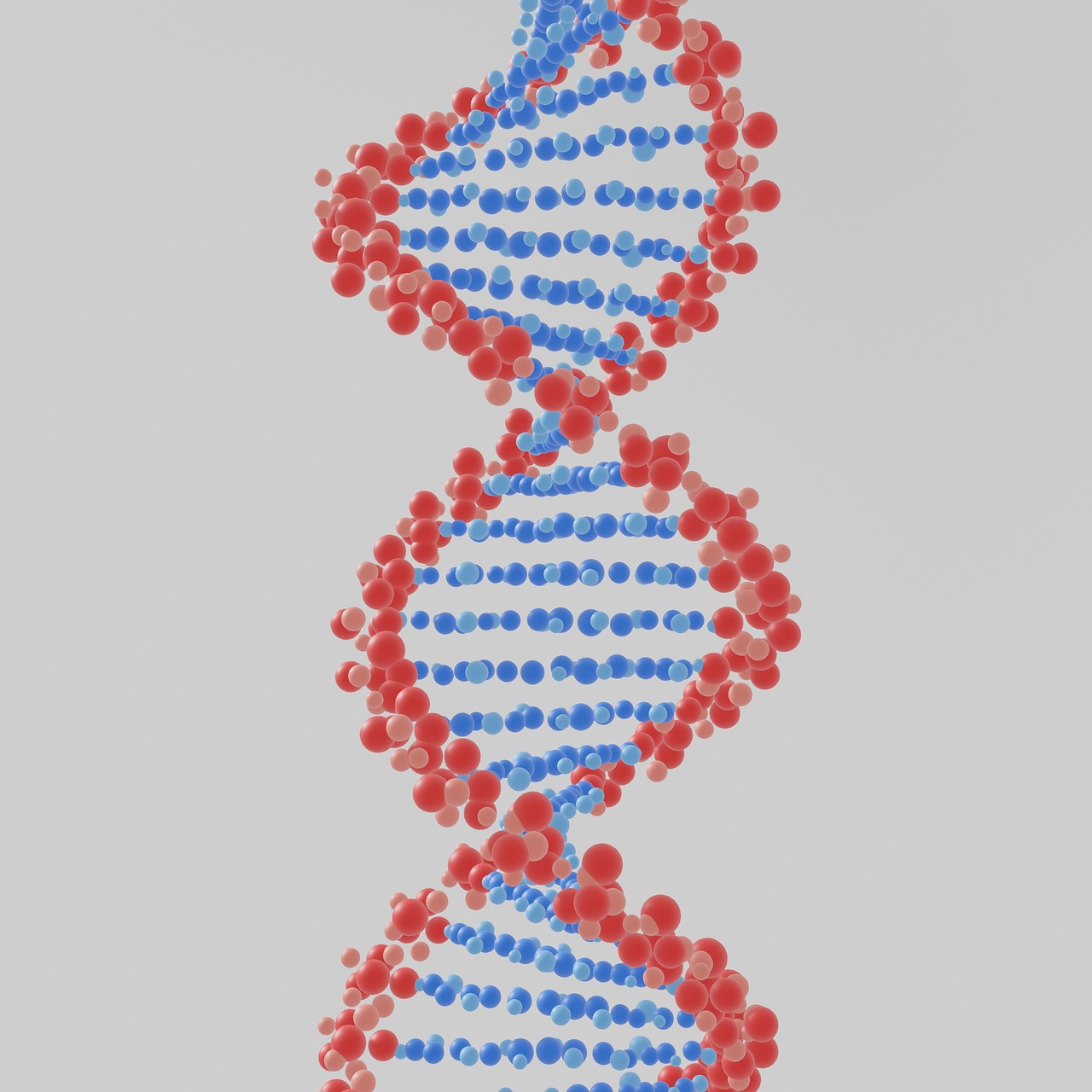
often arises in discussions about genetic modification. This subsection explores the philosophical implications of humans altering life forms and the moral boundaries involved.
This article explores the complex ethical and philosophical considerations surrounding genetic modification, examining its implications for society, morality, and the future of humanity.
Understanding what genetic modification entails is crucial for discussing its ethical implications. This section defines genetic modification and outlines its various applications in agriculture, medicine, and biotechnology.
This section delves into the ethical dilemmas posed by genetic engineering, including issues of consent, playing God, and the potential for unintended consequences that could affect future generations.
Consent is a pivotal aspect of ethical discussions in genetic modification. This subsection examines who should give consent, especially in cases involving embryos or genetically modified organisms.
This part investigates the ethical considerations regarding the rights of future generations affected by genetic modifications made today, raising questions about responsibility and legacy.
Informed consent is vital in genetic research. This section discusses the importance of transparency and understanding in obtaining consent from participants in genetic studies.
The idea of playing God often arises in discussions about genetic modification. This subsection explores the philosophical implications of humans altering life forms and the moral boundaries involved.
When we talk about playing God, we dive deep into the ethical quagmire that surrounds genetic modification. It’s a term that evokes strong emotions and even stronger debates. Are we, as humans, overstepping our bounds when we manipulate the very essence of life? This question isn’t just philosophical; it’s a matter of profound ethical significance. The act of altering life forms can be likened to wielding a double-edged sword. On one side, we have the potential to eradicate diseases, enhance food security, and even extend human life. On the other side, we risk creating unforeseen consequences that could spiral out of control.
Philosophically, altering life forms brings to light the moral boundaries we must consider. For instance, if we can modify a plant to withstand drought, should we also have the capability to change its genetic makeup to produce a different flavor or nutritional profile? The slippery slope argument comes into play here. Once we start modifying one aspect of life, where do we draw the line? It’s like opening Pandora’s box; the implications can be both beneficial and disastrous.
Moreover, the concept of playing God raises questions about the inherent value of natural organisms. Are we diminishing the beauty of nature by altering it? Some argue that every organism has its own intrinsic value and purpose, which should not be tampered with. Others counter that humans have always modified their environment, from selective breeding in agriculture to the domestication of animals. This ongoing tension between preservation and innovation is at the heart of the ethical debate surrounding genetic modification.
Additionally, the implications extend beyond individual organisms. Consider the ecological ramifications of altering a species. If we can enhance a crop's yield, we might inadvertently affect the entire ecosystem that depends on it. The interconnectedness of life means that every change we make can have ripple effects that we may not fully understand. Thus, the question arises: should we be held accountable for these changes, especially if they lead to ecological imbalance?
In summary, the philosophical implications of playing God in genetic modification compel us to reflect on our responsibilities as stewards of the planet. It’s not merely about what we can do; it’s about what we should do. As we navigate this complex landscape, we must engage in thoughtful discussions that consider both the potential benefits and the moral boundaries we must respect.
Genetic modification can significantly impact biodiversity. This section analyzes how altering genetic traits in organisms may lead to ecological imbalances and the loss of natural genetic diversity.
Monoculture, a consequence of genetic modification, poses risks to ecosystems. This subsection discusses the vulnerabilities that arise from relying on genetically modified crops and the potential for widespread agricultural failure.
The societal implications of genetic modification are vast. This section examines how genetic technologies may influence social structures, healthcare access, and ethical norms within communities.
Access to genetic technologies raises concerns about equity. This subsection explores how disparities in access can exacerbate existing inequalities in health and resources among different populations.
- What is genetic modification? Genetic modification is the process of altering the genetic makeup of an organism to achieve desired traits.
- What are the ethical concerns surrounding genetic modification? Ethical concerns include issues of consent, the rights of future generations, and the potential for unintended consequences.
- How does genetic modification affect biodiversity? Genetic modification can lead to monoculture, which threatens biodiversity and ecological balance.
- What does 'playing God' mean in this context? 'Playing God' refers to the ethical debate about humans altering life forms and the moral implications of such actions.
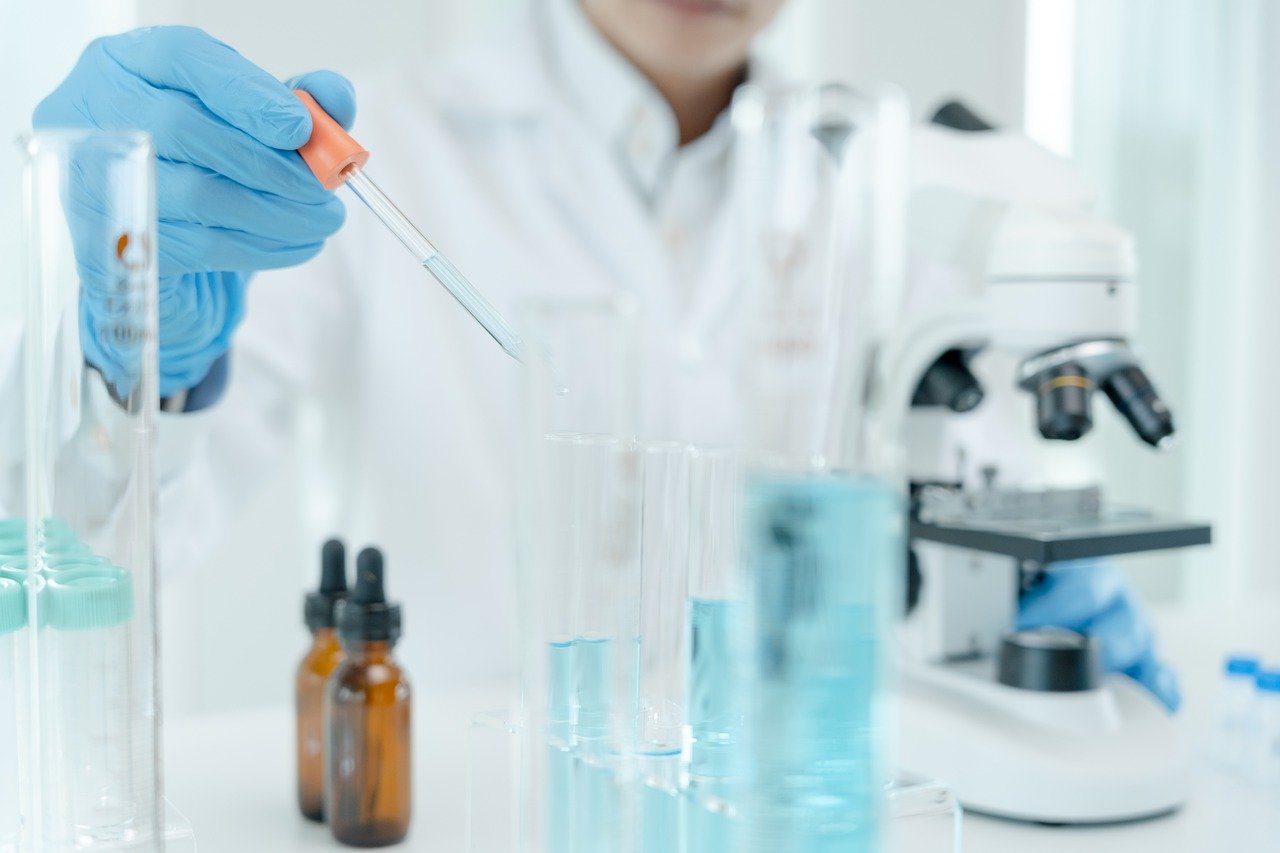
Genetic modification has become a powerful tool in the hands of scientists and agriculturalists, but it comes with significant implications for biodiversity. When we alter the genetic makeup of organisms, we are not just tweaking a few traits; we are potentially reshaping entire ecosystems. The introduction of genetically modified organisms (GMOs) can lead to unforeseen consequences that ripple through the fabric of nature. For instance, when a single crop variety becomes dominant due to its genetically engineered traits, it can displace native species, reducing the overall diversity of plant and animal life in that area.
One of the most pressing concerns is the phenomenon of monoculture. This practice, where a single crop variety is grown over a large area, can lead to ecological imbalances. In natural ecosystems, diversity allows for resilience against pests and diseases. However, when we rely heavily on a few genetically modified strains, we create vulnerabilities. A pest that can overcome the genetic defenses of one crop can lead to widespread agricultural failure, as seen in various regions that have embraced monoculture practices.
Moreover, the loss of genetic diversity is not merely an agricultural concern; it poses a threat to food security and the health of ecosystems. A diverse gene pool is essential for adapting to changing environmental conditions, such as climate change. As we lose traditional varieties of crops and livestock through the adoption of genetically modified options, we may also be losing the very traits that could help us survive future challenges. For example, certain heirloom varieties of crops may possess unique resistances to drought or disease that are not found in their genetically modified counterparts.
To illustrate the impact of genetic modification on biodiversity, consider the following table:
| Aspect | Conventional Farming | Genetically Modified Farming |
|---|---|---|
| Diversity of Species | High | Low |
| Resilience to Pests | High | Potentially Low |
| Adaptability to Climate Change | Varied | Limited to Engineered Traits |
| Risk of Crop Failure | Lower | Higher if Pest Resistance Fails |
As we navigate the complexities of genetic modification, it's vital to consider these impacts on biodiversity. The choices we make today in terms of agricultural practices and genetic engineering will echo into the future, affecting not just our food systems but the very ecosystems that support life on Earth. As stewards of the planet, we must weigh the benefits of genetic modification against the potential risks to biodiversity.
- What is biodiversity? Biodiversity refers to the variety of life in a particular habitat or ecosystem, including the diversity of species, genetic variation, and the ecosystems themselves.
- How does genetic modification affect biodiversity? Genetic modification can lead to reduced biodiversity through practices like monoculture, which can displace native species and diminish genetic variation.
- What are the risks of monoculture? Monoculture can make crops more susceptible to pests and diseases, leading to increased vulnerability and potential agricultural failure.
- Why is genetic diversity important? Genetic diversity is crucial for resilience against environmental changes, pests, and diseases, ensuring the survival of species and ecosystems.

Monoculture, the agricultural practice of growing a single crop over a wide area for many consecutive years, has become increasingly common due to the advancements in genetic modification. While this method can lead to short-term gains in efficiency and yield, it brings with it a plethora of risks that could have far-reaching consequences for our ecosystems and food security. Imagine a world where a single pest or disease could wipe out an entire crop because there is no genetic diversity to combat it. This scenario is not just a hypothetical situation; it is a potential reality that we face today.
One of the most significant risks associated with monoculture is the vulnerability it creates in our food systems. When farmers rely heavily on genetically modified crops that are all genetically similar, they open themselves up to catastrophic failures. A single disease or pest that targets that specific genetic makeup can lead to widespread crop failure. For example, the Irish Potato Famine in the 19th century serves as a stark reminder of the dangers of relying on a single crop variety. When a potato blight struck, the lack of genetic diversity in the crops led to a devastating famine that claimed millions of lives.
Furthermore, monoculture practices can disrupt local ecosystems. By replacing diverse plant species with a single crop, we alter habitats and reduce the availability of food and shelter for various wildlife. This can lead to a decline in biodiversity, which is essential for a healthy ecosystem. Biodiversity acts like a safety net, providing resilience against environmental changes and diseases. When we strip away this diversity, we risk creating an ecosystem that is less adaptable to change.
Additionally, the reliance on monoculture can lead to increased use of chemical fertilizers and pesticides. Farmers often resort to these chemicals to combat the vulnerabilities that arise from planting a single crop. Over time, this can degrade soil health and lead to pollution of nearby water sources, creating a cycle of dependency on synthetic inputs that further harms the environment. The long-term impacts of these practices can be devastating, not just for the land but for human health as well.
To illustrate the potential risks of monoculture, consider the following table that summarizes key issues:
| Risk | Description |
|---|---|
| Crop Vulnerability | Increased susceptibility to pests and diseases due to lack of genetic diversity. |
| Biodiversity Loss | Reduction in plant and animal species that rely on diverse ecosystems. |
| Soil Degradation | Overuse of fertilizers and pesticides can harm soil health and structure. |
| Environmental Pollution | Runoff from chemical use can contaminate water sources and harm aquatic life. |
In conclusion, while monoculture may offer immediate benefits in terms of agricultural efficiency, the long-term risks it poses cannot be ignored. It is vital for us to consider alternative farming practices that prioritize biodiversity and sustainability. By doing so, we can create a more resilient food system that benefits not only current generations but also those to come.
- What is monoculture? Monoculture refers to the agricultural practice of growing a single crop species in a given area, often leading to reduced biodiversity.
- Why is monoculture risky? It creates vulnerabilities to pests and diseases, leads to biodiversity loss, and can result in soil degradation and pollution.
- How can we mitigate the risks of monoculture? By adopting crop rotation, polyculture, and organic farming practices, we can enhance biodiversity and reduce dependence on chemical inputs.

The advent of genetic modification has ushered in a new era of possibilities and challenges, fundamentally altering how we perceive and interact with the world around us. As we delve into the societal implications of these technologies, it's essential to recognize that the impact is not merely scientific; it extends deeply into the fabric of our communities, influencing social structures, healthcare access, and ethical norms. Imagine a world where diseases are eradicated, food scarcity is a thing of the past, and humans can enhance their abilities through genetic engineering. Sounds like a dream, right? But with great power comes great responsibility, and therein lies the crux of the matter.
One of the most pressing issues is the potential for inequity in access to genetic technologies. As these advancements become available, who gets to benefit from them? Will they be accessible to everyone, or just a privileged few? The reality is that disparities in access can exacerbate existing inequalities in health and resources among different populations. For instance, wealthier nations might harness these technologies for agricultural advancements, while developing countries may struggle to keep pace. This divide could lead to a world where the rich get richer, and the poor are left behind, further entrenching social stratification.
Moreover, the implications of genetic modification extend to healthcare systems. Imagine a scenario where genetic therapies are available that could potentially cure genetic disorders. While this sounds promising, the question arises: who can afford these treatments? If only a select few can access life-saving therapies, the moral implications are staggering. It raises questions about the equity of healthcare and whether we are creating a society where health is a privilege rather than a right. As we navigate these waters, we must consider the ethical frameworks guiding our decisions and ensure that we are not merely advancing technology for its own sake but doing so in a way that is just and equitable.
Additionally, the ethical norms within communities may shift as genetic modification becomes more commonplace. Traditional beliefs about nature and the sanctity of life could be challenged, leading to a cultural shift that may not be universally accepted. Some might argue that altering the genetic makeup of organisms is akin to playing God, raising profound questions about our role in the natural world. As we grapple with these changes, it's crucial for society to engage in open dialogues about the moral boundaries of genetic engineering, ensuring that diverse perspectives are considered in shaping our collective future.
In conclusion, the societal implications of genetic modification are vast and complex. While the potential benefits are remarkable, they come with a host of ethical dilemmas that we must address. As we stand on the precipice of this new frontier, we must ask ourselves: how can we harness the power of genetic modification responsibly? The answers may not be simple, but they are essential for guiding our path forward.
- What are the main benefits of genetic modification? Genetic modification can lead to improved crop yields, disease resistance, and advancements in medical treatments, potentially addressing food security and health issues.
- Are there risks associated with genetic modification? Yes, risks include ecological imbalances, ethical dilemmas regarding consent, and potential health impacts that are not yet fully understood.
- How does genetic modification affect biodiversity? Genetic modification can lead to monoculture, reducing genetic diversity and making ecosystems more vulnerable to diseases and environmental changes.
- Who decides on the ethical use of genetic modification technologies? Ethical decisions are typically made by a combination of scientists, ethicists, policymakers, and the public, but ongoing dialogue is essential to address diverse perspectives.

As we delve into the world of genetic modification, one of the most pressing issues that emerges is the question of equity and access to these groundbreaking technologies. Imagine a world where the benefits of genetic advancements are distributed unequally; this is not just a hypothetical scenario but a potential reality if we do not address these disparities. The divide between those who can afford genetic modifications and those who cannot could lead to a new form of inequality, exacerbating existing social divides.
Access to genetic technologies can vary greatly based on a multitude of factors, including economic status, geographical location, and educational background. For instance, individuals in developed nations often have greater access to cutting-edge genetic therapies and agricultural technologies compared to those in developing countries. This disparity raises significant ethical concerns: should only the wealthy benefit from advancements that could potentially save lives or improve food security? Or should these technologies be made available to all, regardless of socioeconomic status?
Moreover, the cost of genetic modification can be prohibitively high. For example, gene therapies for rare genetic disorders can run into hundreds of thousands of dollars, placing them out of reach for many families. This situation creates a paradox where the most vulnerable populations, who could benefit the most from these innovations, are often the least likely to access them. As a society, we must grapple with the moral implications of allowing such disparities to persist.
Additionally, the educational gap plays a crucial role in access to genetic technologies. Those with higher levels of education are more likely to understand and take advantage of genetic advancements. This leads to a situation where knowledge becomes a privilege, further widening the gap between different social groups. To address this, educational initiatives aimed at increasing awareness and understanding of genetic technologies among underrepresented communities are essential.
In conclusion, the issue of equity and access to genetic technologies is complex and multifaceted. It requires a concerted effort from policymakers, scientists, and society as a whole to ensure that the benefits of genetic modification are shared equitably. We must ask ourselves: how can we create a future where everyone has the opportunity to benefit from these incredible advancements? The answer lies in fostering inclusivity and ensuring that access to genetic technologies is not a privilege reserved for the few, but a right for all.
- What are genetic technologies? Genetic technologies refer to methods and tools used to manipulate the genetic material of organisms, including gene editing, genetic engineering, and biotechnology.
- Why is equity important in genetic modification? Equity is crucial because it ensures that all individuals, regardless of their background, have access to the benefits of genetic advancements, preventing the exacerbation of social inequalities.
- How can we improve access to genetic technologies? Improving access can involve policy changes, educational initiatives, and community outreach programs that aim to inform and empower underrepresented populations.
Frequently Asked Questions
- What is genetic modification?
Genetic modification refers to the process of altering the DNA of an organism to achieve desired traits. This can involve adding, removing, or altering specific genes. It's widely used in agriculture to create crops that are resistant to pests or diseases, and in medicine for developing gene therapies.
- What are the ethical concerns surrounding genetic modification?
Ethical concerns include issues of consent, the potential for unintended consequences, and the moral implications of "playing God." People worry about who has the right to make genetic decisions, especially regarding embryos or future generations, and whether we should interfere with natural processes.
- How does genetic modification impact biodiversity?
Genetic modification can threaten biodiversity by promoting monoculture, where a single crop variety dominates an area. This can lead to ecological imbalances and reduce the resilience of ecosystems, making them more vulnerable to pests and diseases.
- What is informed consent in genetic research?
Informed consent is the process of ensuring that participants in genetic research understand the implications of their involvement. This includes being aware of potential risks and benefits, as well as how their genetic information will be used. Transparency is key to maintaining ethical standards.
- Who should give consent for genetic modifications?
Consent can be complex in genetic modification, especially when it involves embryos or genetically modified organisms. Ideally, informed consent should be obtained from individuals directly affected, but ethical questions arise regarding the rights of those who cannot consent, such as future generations.
- What does "playing God" mean in the context of genetic modification?
The phrase "playing God" refers to the ethical dilemma of humans altering life forms through genetic modification. It raises questions about the moral boundaries of scientific intervention and whether we should have the authority to change the fundamental aspects of life.
- How can genetic technologies affect social equity?
Access to genetic technologies can create disparities among populations. Those with better resources may benefit more from advancements in genetic modification, potentially widening the gap in health and economic opportunities between different communities.


